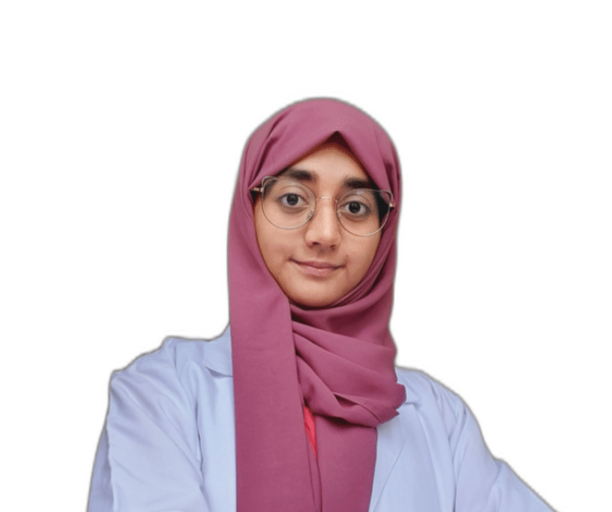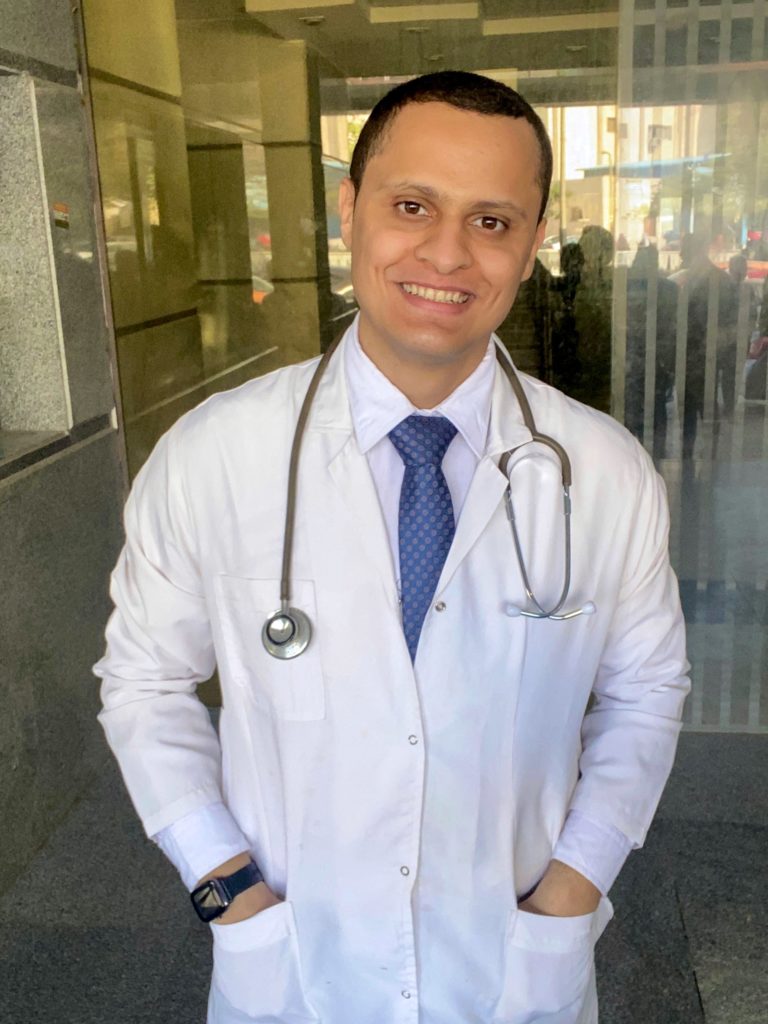Our latest Students’ Corner article submission was on the topic ‘What is it like to be a student on a neurology placement?‘. As usual, we received lots of great submissions, which the EAN Student Task Force reduced down to four winners. Here we present those winning essays. Happy reading!
What is it like to be a student on a neurology placement?
by Nameera Shaikh, 5th year medical student, Georgia

Being a student on a neurology placement can be an exciting and challenging experience. Neurology is a branch of medicine that deals with the diagnosis and treatment of disorders of the nervous system, including the brain and spinal cord. As a student on a neurology placement, you have the opportunity to observe and participate in the care of patients with various neurological conditions.
…
One of the highlights of a neurology placement is the opportunity to interact with patients and their families. This can be a unique and rewarding experience, as you have the chance to learn about their experiences, needs, and perspectives. You can also observe and learn from healthcare professionals, including neurologists, neurosurgeons, and nurses, as they diagnose and treat patients.
Additionally, being on a neurology placement can be an excellent opportunity to learn about the latest developments and advancements in the field. Neurology is a rapidly evolving field, and you will have the chance to see new treatments and technologies being used in practice. This can be a great way to gain an understanding of the latest developments in the field and how they can be applied in real-world settings.
However, a neurology placement can also be challenging. The nature of neurological disorders can be complex, and patients can present with a range of symptoms and conditions. As a student, you will need to be prepared to learn and understand a large amount of information in a short period of time. This can be challenging, especially if you are new to the field.
In conclusion, a neurology placement can be an exciting and rewarding experience for students. You have the opportunity to learn about the latest developments in the field, interact with patients and their families, and observe the care of patients with neurological disorders. However, it can also be challenging, and students will need to be prepared to learn a large amount of information in a short period of time. If you are interested in pursuing a career in neurology, or if you simply want to learn more about the field, a neurology placement can be a great opportunity.
Neurology Placement: A challenging and rewarding student opportunity
by Mahmoud Tarek Hefnawy, 6th year medical student, Egypt

There are both challenges and rewards in participating in a student placement in neurology; the branch of medicine concerned with the study and treatment of disorders of the nervous system, including the brain, spinal cord, and nerves. Going on a placement in a working department gives students, a chance to witness first-hand how neurology healthcare professionals handle diagnosis and treatment of their patients.
…
I found my passion on a neurology placement because this branch enriches my science curiously; imagine learning about our nervous system and understanding how our brain and bodies work; imagine learning about our memory, perception, and emotions and imagine learning about certain neurological disorders that impair all of these functions. Personally, this field inspired me a lot and by studying neurology and reading some research in this field I was further pushed to learn the basics of clinical research to be part of this huge field by adding to it, not only learning from it.
Also, you will likely work closely with a supervising physician or neurologist, assisting in patient evaluations and procedures such as electroencephalograms (EEGs) and lumbar punctures. You may also have the opportunity to observe surgeries, including placing electrodes for deep brain stimulation. In addition to hands-on experience, you will also have the chance to learn about recent research and advancements in the field of neurology. You will have access to cutting-edge technology and equipment, and you may also be able to attend exciting conferences and presentations where you can meet experts in the field and get a lot of inspiration, which was enough for me to consider being a future neuroscientist.
It is important to remember that working in neurology can be emotionally challenging at times, as you will likely be working with patients with various neurological conditions, including degenerative diseases, strokes, and traumatic brain injuries. However, this experience can also be deeply fulfilling, as you will have the opportunity to impact patients’ lives and assist in their recovery positively.
In conclusion, being a student on a neurology placement is a unique opportunity to gain hands-on experience and knowledge in the field of brain and nervous system function, besides being a unique opportunity to enrich our scientific curiosity by searching the literature for the recent advancement in neuroscience. It can be challenging and rewarding, providing students with the skills and experience necessary for a successful career.
A whole new world
by Naida Salković, 5th year medical student, Bosnia & Herzegovina

For medical students in my country, the neurology department is one of the first ones that we have contact with. Of course, as for most medical students, anamnesis taking is the first step to overcome in our long run to become doctors. While history taking is one of the most important steps in making a final diagnosis, we, students, are impatient to start with a physical exam, and that is where the magic begins. During neurological examinations there are so many things to examine and using different equipment is the reason why I felt so confident while being with patients. Defining mental status, motor function and balance, as well as the sensory exam was for me the most beautiful part for a whole round at this department.
…
By doing this performance you get the key to unlock the diagnosis and that’s when you know that your patient can get the best treatment and that there is hope of helping and healing. But even though neurological anamnesis and exams often can lead to diagnosis, the treatment of the diseases are not that easy to find, and for a highly motivated student who has an idea that she is going to help every patient, that was very hard to testify. Neurology is hard, the treatments are long-term and sometimes patients don’t get better, but placing hope in the power of neuroplasticity is what I used as a coping mechanism. The neurological department can be difficult; often the patients who stay there have a difficult clinical picture, and this can often be difficult for us students because we know that we cannot help, and that the only thing we can do is to offer our kindness. Walking through the corridors that are painted green, thinking about the meaning of the results we got, whether Babinski’s sign was positive, became my favourite activity on Tuesdays. All doctors who made their contribution to the treatment of neurological patients, and observed the appearance of various anomalies in different diseases, are responsible for my great love for neurology. And if you’re wondering why? The answer is simple, because all these pathological signs allowed me to make accurate diagnoses, and this led to a feeling of confidence and gave me motivation to study, to research more and to think what else could neurology be missing.
Although I haven’t been to the neurology department for some time, I’m still waiting for the opportunity to come again for an internship there and to immerse myself in the magic that neurology has. The world of neurology for me is the world of hope, a world where truly miracles do happen, a world where the brain shows us that there is so much that we need to discover.
What is it like to be a student on a neurology placement?
by Batuhan Ayci, 5th year medical student, Turkey

As a medical student on a neurology placement, you can expect to embark on an exciting and enriching journey into one of the most complex and dynamic fields in medicine. Neurology is a constantly evolving speciality, where the nervous system and brain are studied extensively to understand their functions and dysfunctions. A neurology placement provides a unique opportunity for medical students to observe and participate in wide-reaching procedures and treatments, work with a team of healthcare professionals, and gain hands-on experience in the field.
…
One of the crucial aspects of a neurology placement is the emphasis on patient-centred care. Neurologists work closely with patients to understand their symptoms, conduct thorough exams, and provide clear explanations of their findings. Medical students will have the chance to witness this patient-centred approach, which emphasises the importance of listening to patients, understanding their concerns and needs, and developing a personalised care plan for each individual.
During a neurology placement, students will have the opportunity to observe and participate in omnifarious procedures and treatments, such as lumbar punctures, electroencephalograms, and electromyograms. These procedures provide direct insight into the functioning of the nervous system, enabling medical students to correlate physicalfindings with symptoms. They can also witness various treatments, including medications, physical therapy, and surgery, and learn about the potential benefits and risks of these treatments.
Working with a team of healthcare professionals is also a critical part of a neurology placement. Students will have the opportunity to work with neurologists, nurses, and physical therapists, among others, and understand the interdisciplinary nature of patient care. This is an opportunity to learn about the importance of collaboration and communication in providing the best possible care for patients.
However, a neurology placement can be challenging due to the complex nature of the conditions that neurologists treat. Many neurological conditions, such as multiple sclerosis and epilepsy, are characterised by broad-spectrum symptoms that can vary greatly from one patient to another. This requires medical students to have a strong foundation in anatomy, physiology, and the various diagnostic methods used in neurology. It is, therefore, essential to prepare well for a neurology placement by reviewing these fundamental concepts.
Despite the challenges, a neurology placement is a truly rewarding experience for medical students. It provides a unique opportunity to gain hands-on experience in a complex and evolving field and deepen one’s understanding of the nervous system with the chance to observe the impact that medical care can have on a patient’s life. The experience gained on a neurology placement can be invaluable, shaping a medical student’s future career as a research-physician or clinician in the field of neurology.
In conclusion, a neurology placement is an exciting and enriching experience for medical students with a passion for neurology. It offers the opportunity to gain hands-on experience, deepen one’s understanding of the nervous system, and work with a team of healthcare professionals to provide patient-centred care. By observing and participating in various procedures and treatments, medical students can learn about the complex nature of the conditions that neurologists treat and the challenges of providing effective care. A neurology placement is undoubtedly a stepping stone towards a rewarding career in research or clinical practice in the field of neurology.







